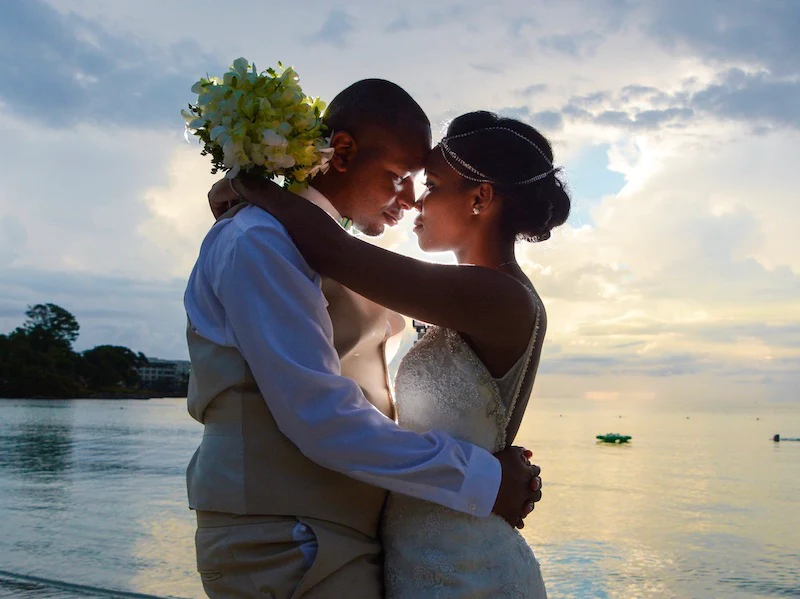Imagine your destination wedding as a symbolic threshold, marking the beginning of a new chapter in your life. As you plan this significant event, the question of whether to pay for your guests’ stay can weigh on your mind. The decision involves various factors that go beyond mere finances. By considering your budget constraints, evaluating guest expectations, understanding cultural norms, exploring accommodation options, and communicating clearly with your invitees, you enter a realm where etiquette meets practicality. Read Wedding Destinations in South Goa
How you navigate this dilemma could shape the tone of your special day and the memories that linger long after the celebration ends.
Consider Your Budget Constraints
- When planning your destination wedding, carefully assess your budget constraints to ensure a financially stress-free celebration. Setting budget limitations early on can help you determine how much you can afford to allocate towards guest contributions. It’s crucial to consider financial considerations while keeping in mind hosting etiquette when deciding on the extent of your financial responsibility towards guests.
- To manage budget limitations effectively, you may need to prioritize costs and identify areas where guests’ contributions can be requested. Communicating openly with guests about financial expectations can help avoid any misunderstandings later on. While it’s customary for the couple to cover certain expenses, such as accommodation or meals, guests can also contribute by covering their travel expenses or participating in group activities.

Evaluate Guest Expectations
- To navigate the financial aspects of your destination wedding smoothly, it’s essential to evaluate guest expectations regarding their contributions and involvement in the celebration. When considering guest contributions, it’s crucial to communicate clearly about financial responsibilities.
- While it’s customary for the couple to cover the majority of the expenses, guests may still incur costs for travel, accommodation, and additional activities. Understanding guest etiquette in this context is key; guests should be aware of what’s expected of them financially and what expenses they’re responsible for during the wedding festivities.
- Guests attending a destination wedding should also be mindful of their financial responsibilities. It’s important for them to budget for travel and accommodation expenses, as well as any additional costs that may arise during their stay. To ensure a harmonious celebration, both the couple and guests need to be transparent about expectations and financial obligations. By aligning on these matters upfront, everyone can fully enjoy the wedding without any financial surprises.
Understand Cultural Norms
- Understanding cultural norms surrounding weddings can significantly impact the planning and execution of a destination wedding. Cultural etiquette plays a vital role in determining who bears the financial implications of a wedding, especially when it comes to hosting a destination event. In some cultures, it’s customary for the couple or their families to cover all expenses related to the wedding, including guests’ accommodations and travel costs.
- On the other hand, in different cultural contexts, guests may be expected to make monetary contributions to help offset the expenses incurred by the hosts. Social expectations also influence the financial dynamics of a destination wedding. It’s essential to consider the cultural norms of both the couple and their guests to avoid misunderstandings or potential conflicts. Communicating openly about expectations regarding monetary contributions or financial responsibilities can help align everyone’s understanding and ensure a smooth and respectful celebration.
Explore Accommodation Options
- Navigating the financial dynamics of a destination wedding requires careful consideration of accommodation options to ensure a seamless and respectful celebration. When planning your wedding, think about the preferences and budgets of your guests. Providing a range of accommodation options caters to different needs and financial capabilities.
- Luxury resorts offer a convenient and luxurious stay for guests who prefer a pampered experience. They often provide amenities like spas, fine dining, and stunning views, enhancing the overall wedding experience. On the other hand, local guesthouses can offer a more authentic and budget-friendly option for guests looking to immerse themselves in the local culture. These guesthouses provide a charming and cozy atmosphere, allowing guests to experience the destination in a more intimate way. Additionally, staying in local guesthouses can support the community and provide a unique insight into the destination’s way of life.
Communicate Clearly With Guests
- When informing your guests about the details of your destination wedding, clarity in communication is key to ensuring everyone is well-informed and prepared for the event. Clearly outline any guest contributions that may be expected, such as group activities, meals, or accommodation expenses. Make it easy for guests to understand what’s required of them to avoid any confusion or awkward situations.
- In terms of RSVP etiquette, provide a clear deadline for responses and specify the preferred method of communication, whether it be through a wedding website, email, or traditional mail. This helps you keep track of attendance numbers and make necessary arrangements without added stress. Clearly communicate any important details, such as dress code, transportation options, and any cultural considerations that guests should be aware of.
Conclusion
When deciding whether to pay for your guests’ stay at a destination wedding, it’s important to consider your budget constraints. Evaluate guest expectations and understand cultural norms. Explore accommodation options and communicate clearly with your guests. By taking these factors into account, you can make an informed decision that ensures a memorable and enjoyable experience for everyone involved. Remember, open communication and thoughtful planning are key to a successful destination wedding.